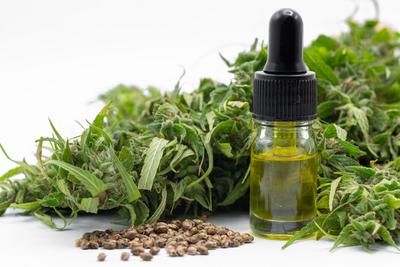Diet and Drug Test Results: Can Certain Foods Cause False Positives?
Ever wonder if what you eat could mess with your drug test results? It might sound odd, but people often wonder if they could get a false positive by eating a certain food. Let's break down how drug tests work and what might throw them off.

What Can Affect Drug Testing Accuracy
Drug tests are supposed to detect specific substances in the body. However, some factors can affect their accuracy:
False Positives And False Negatives Results
Sometimes, drug tests can produce false results. How and when it can happen?
False Positives
These occur when a test incorrectly indicates the presence of a substance. This can happen due to contamination or cross-reactivity with other substances (such as prescription medication). The risk of contamination is a reason why you should perform drug testing only with SAMHSA-certified labs.
False Negatives
If a drug test fails to detect a substance present in someone's body, it is considered a false negative. This can be due to the test's sensitivity limits or improper sample handling.
Can Certain Foods Cause False Positives?
Yes, certain foods can indeed cause false positives in drug tests. Here's how:
- Poppy Seeds: Consuming foods containing poppy seeds can lead to false positives for opiates like morphine and codeine. The seeds can contain trace amounts of these substances, which might be detected in a drug test.
- Hemp Seeds: Despite containing less than 0.3% THC, regular consumption can lead to a false positive from THC accumulating in fat cells.
- Durian: Durians can lead to a false positive on a breathalyzer test due to the residual alcohol it can leave behind in the mouth.
- Coca Tea: Coca tea is made from coca leaves, which is the same plant used to produce cocaine. Research indicates that coca tea breaks down into cocaine metabolites, which can result in a false positive on a drug test. These metabolites can be detected in the body for up to 36 hours and may appear in tests as soon as 2 hours after consumption.
- Mouthwash: Using mouthwash can temporarily raise breath alcohol readings, but these levels drop quickly and generally don't affect the accuracy of breathalyzer tests if some time has passed after using the mouthwash.
- Pizza: The yeast in pizza dough ferments sugars into alcohol, which might leave traces of alcohol in your mouth and cause a false positive.

Recommendations Before a Drug Test
While the foods mentioned earlier, like poppy seeds or hemp seeds, have been known to cause false positives in some cases, they are not guaranteed to do so. However, to ensure the most accurate drug test results, it's a good idea to avoid certain foods and beverages beforehand. Make sure to follow any pre-test instructions provided by your testing facility.
Choose Health Street As Your Drug Testing Partner
Health Street offers a wide variety of drug-testing options, whether you need it for employment, court proceedings, or personal reasons. We have over a decade of experience and thousands of clinics nationwide. Register online or give us a call today.






